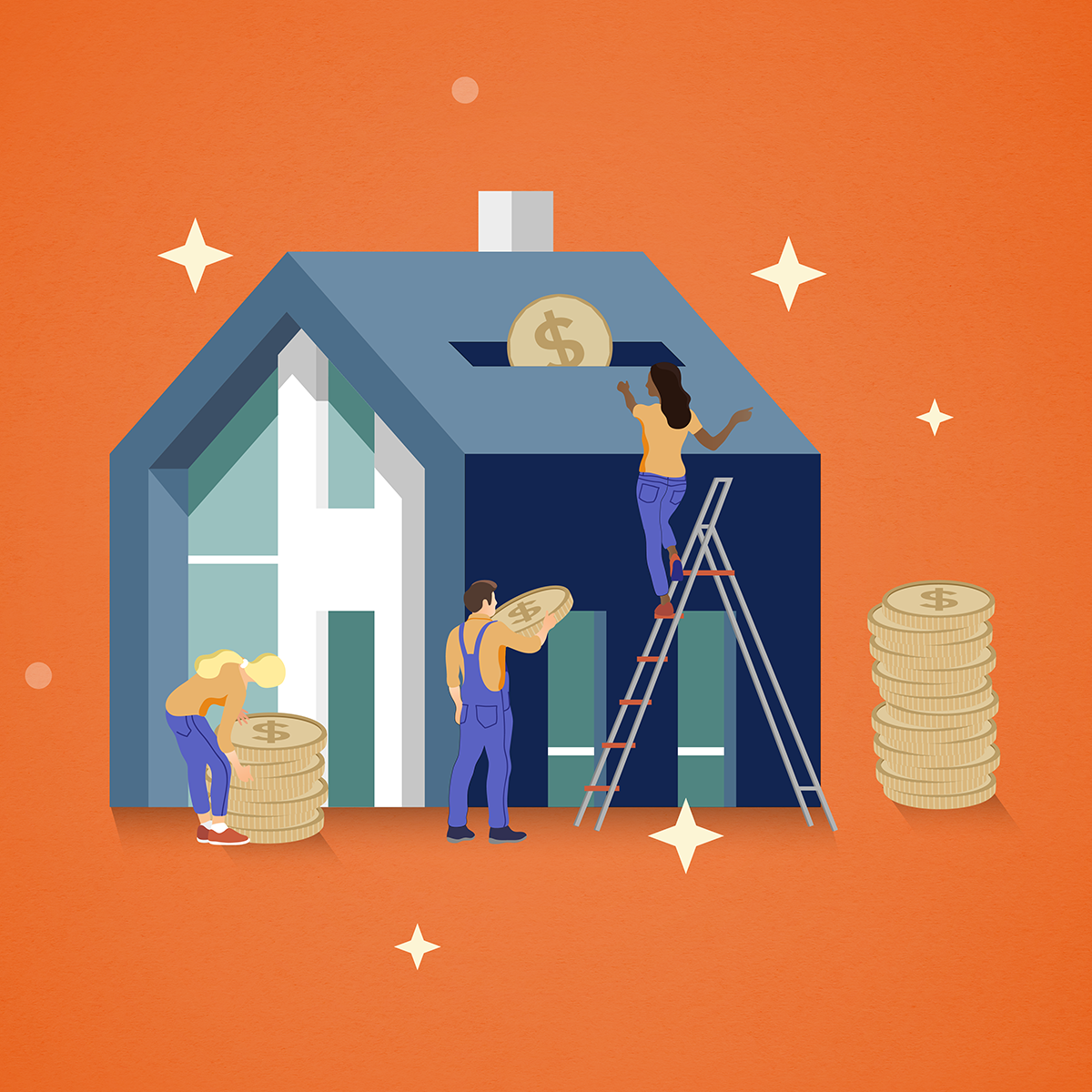
What the Bank of Canada's interest rate changes mean for your money | Tangerine
2.25%
Bank of Canada's policy interest rate, as of Oct. 29, 2025
Dec. 10, 2025
Next rate announcement
Have you been breathing a sigh of relief since the Bank of Canada began lowering its interest rate? You’re not alone. Declining rates are good news for anyone looking for a mortgage or loan, but there are other considerations to keep in mind as well.
The Bank of Canada is the nation's central bank, and its role is to promote Canada's economic and financial welfare. It does this through something called monetary policy, which aims to keep inflation low, stable and predictable.
So how does the Bank of Canada do this, and what does it all mean for you? Read on.
Why and how do interest rates change?
To answer that question, you have to understand how the Bank's key policy rate works. The key policy rate (sometimes called the key interest rate or overnight rate) is essentially a benchmark that financial institutions can use to set their own interest rates for mortgages and other loans.
If the Bank of Canada sees inflation data come in above target or it anticipates higher inflation on the horizon, it might raise the key interest rate. The aim would be to discourage borrowing and spending from businesses and consumers alike in order to bring inflation back down.
On the flip side, if there's a period of low inflation, which might indicate an economic slowdown or recession, the Bank may choose to decrease the key interest rate to try and stimulate economic activity.
These key interest rate decisions don't just happen on a whim. The Bank's governing council announces its policy rate decisions on fixed dates eight times per year.
The announcement can often be that nothing is changing, meaning the Bank of Canada may simply hold its key policy rate where it is instead of moving it up or down. That's what happened from September 2010 to January 2015, when the Bank held its key policy rate steady at one percent.
Some years are more eventful than others, however, such as in 2022, when the Bank of Canada increased its key policy rate seven times — hiking the key interest rate from 0.25% to 4.25% by the end of the calendar year to combat a period of high inflation not seen in three decades. The rate then peaked at 5.0% in July 2023, lasting a year before slowly decreasing to 2.50% by September 2025.
The overnight rate vs. your bank's rates
Here's a quick explainer of the difference between the Bank of Canada's key interest rate and your bank or financial institution's lending rate.
When the Bank of Canada increases its key interest rate, financial institutions across Canada will immediately adjust their own borrowing rate — called the prime rate. Each bank determines its own prime rates and fees for everything from mortgages to loans to credit cards to ATM withdrawals.
How the interest rate announcement affects your finances
What do the Bank of Canada's interest rate announcements mean for you? Let's look at the effect interest rates have on borrowing, saving and investments.
Interest rates and your mortgage
Canadian homeowners who carry a mortgage have to choose between a fixed or variable rate term. Variable rates "float" up or down as interest rates rise and fall. So when the Bank of Canada hikes interest rates by 0.25 per cent, variable rate mortgage holders will likely see their mortgage interest rate rise by 0.25 per cent.
Fixed rate mortgages are not immediately affected by the Bank of Canada's rate. That's because the mortgage interest rate is fixed at a rate agreed upon by the mortgage holder and the bank for a specified term, commonly five years, but terms of one to 10 years are widely available, too, including at Tangerine.
When the key interest rate rises, your mortgage payments may rise as well, depending on the terms of the loan. However, for some variable rate mortgage holders, monthly payments might not increase even if the interest rate increases. In this case, more of the monthly payment will go towards interest rather than paying down the principal balance.
Uncomplicate your mortgage
Don’t stress over the numbers and calculations – we’re here to help you find the right Mortgage for your needs.
This holds true until interest rates reach a "trigger rate" — a point at which the lender may demand an increase in monthly payments to continue paying down the loan's interest.
Interest rates and your home equity line of credit (HELOC)
Home equity lines of credit, or HELOCs, typically have variable interest rates. So if the Bank of Canada lowers its key interest rate, your home equity line of credit will also go down in lock-step.
Interest rates and your savings account
Your financial institution determines the interest rate on your savings deposits. Typically, when the Bank of Canada increases its rate, banks don't immediately follow up with a rate hike on savings deposits.
That said, a higher interest rate environment can create competition between banks and financial institutions to attract more deposits. When rates rise, it can lead to higher interest on your savings.
Interest rates and your GICs
Grow your savings safely with our GICs
Save money knowing your investment is guaranteed at a great rate for whatever term you choose.
Similar to fixed-rate mortgages, the interest rate on GICs is determined when you purchase the investment. Changes in short-term interest rates, including a Bank of Canada rate increase or decrease, won't affect the interest rate that's locked in for an existing GIC. You'll continue receiving the pre-determined interest rate for the remainder of your GIC term. But the policy rate change will have an effect on the rate offered for new GICs, though perhaps not immediately.
The bottom line
The Bank of Canada makes its interest rate decisions with the big economic picture in mind and tries to keep inflation low, stable and predictable.
How that impacts you depends on the type of loans you carry (fixed or variable) and where you stash your cash (savings account or GIC).
Understanding your financial situation can help you stay calm and clear-headed the next time the Bank of Canada announces a change in its policy rate.

